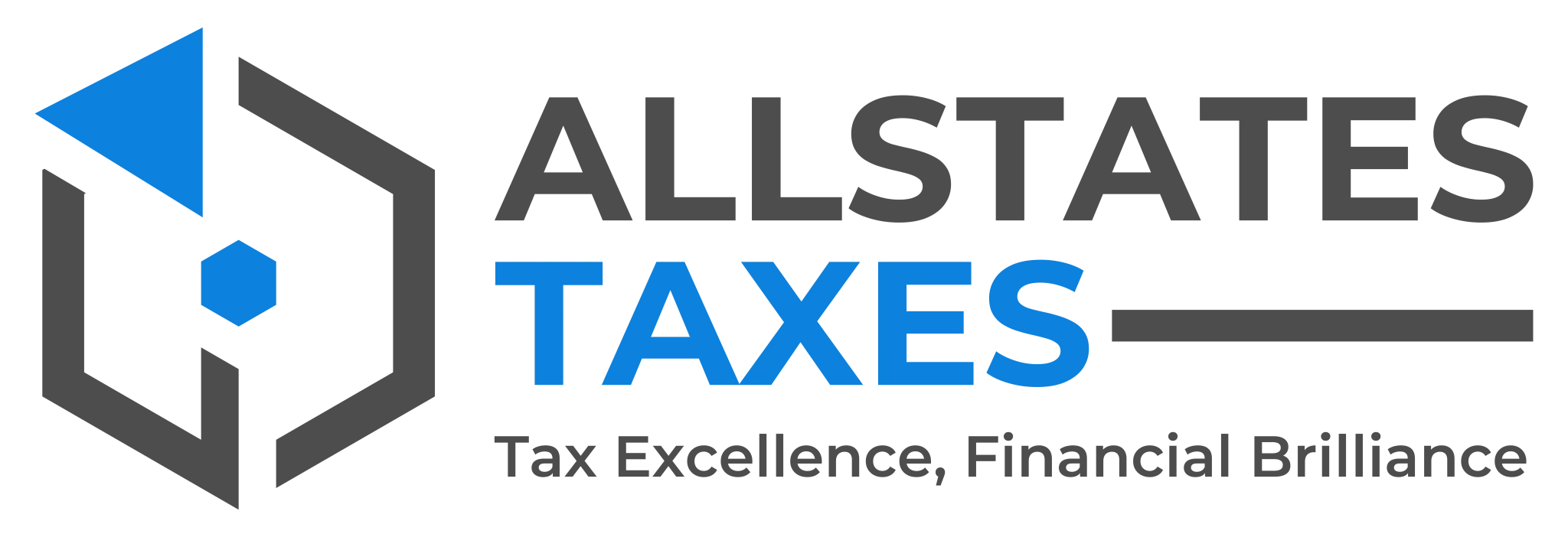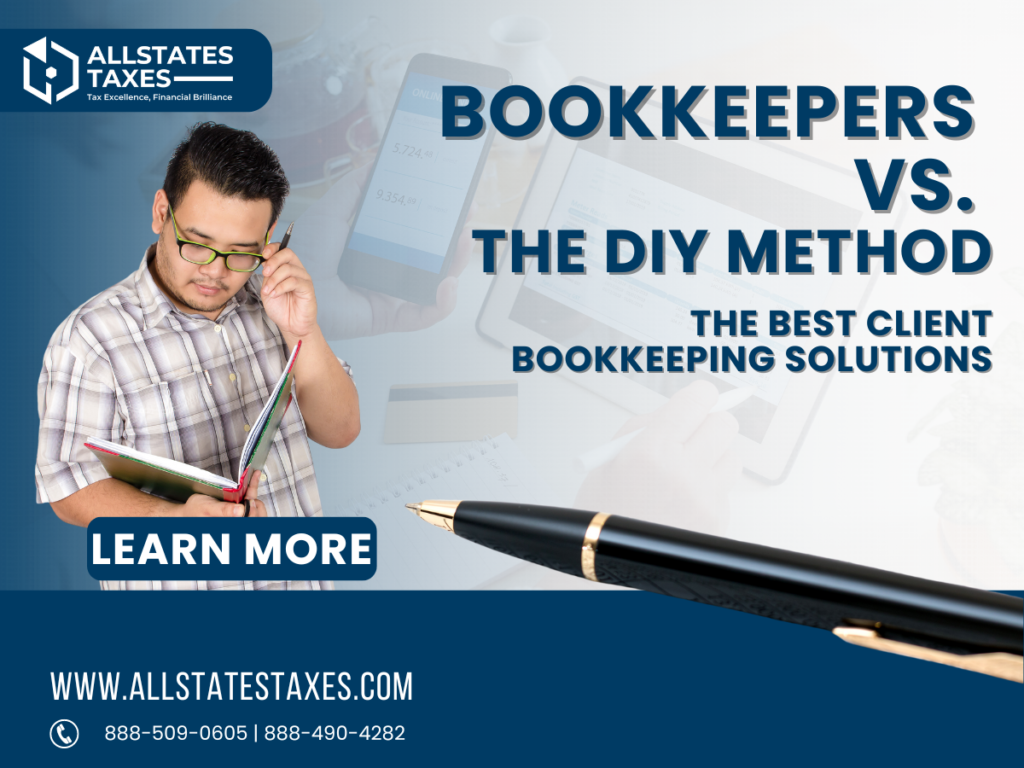In the realm of financial management, one of the most pressing decisions businesses face is whether to hire a professional bookkeeper or handle bookkeeping tasks themselves. This decision can significantly impact the efficiency and accuracy of financial records, as well as the overall success of a business. Understanding the pros and cons of bookkeepers versus the DIY method is essential for selecting the best client bookkeeping solutions tailored to your business needs.
Client Bookkeeping Solutions: What to Consider
Before diving into the specifics of bookkeepers and DIY bookkeeping, it’s important to understand what client bookkeeping solutions entail. These solutions refer to the various methods and services available to businesses for managing financial records, ensuring that all transactions are accurately recorded, categorized, and maintained for future reference. Effective bookkeeping is crucial for making informed business decisions, preparing tax documents, and maintaining financial stability.
The Role of Professional Bookkeepers
Professional bookkeepers play a vital role in managing a business’s financial records. They bring expertise, experience, and a deep understanding of accounting principles to the table. When you hire a bookkeeper, you’re entrusting the responsibility of maintaining accurate financial records to someone whose sole focus is on managing and organizing these records.
Pros of Hiring a Professional Bookkeeper
- Expertise and Accuracy
- Professional bookkeepers are trained in accounting principles, which means they have the knowledge to accurately categorize transactions, manage payroll, and handle other financial tasks. This reduces the risk of errors that could lead to financial discrepancies or issues with tax compliance.
- Time Efficiency
- Hiring a bookkeeper allows business owners to focus on their core operations rather than spending time on financial management. This is especially beneficial for small businesses or entrepreneurs who may not have the time to dedicate to detailed bookkeeping tasks.
- Compliance and Reporting
- Bookkeepers are well-versed in financial regulations and tax laws. They ensure that all financial records are compliant with local and federal regulations, which is crucial for avoiding penalties or legal issues. Additionally, they can generate detailed financial reports that provide valuable insights into the business’s financial health.
- Customization
- Bookkeepers can tailor their services to meet the specific needs of a business. Whether it’s managing payroll, handling accounts receivable and payable, or providing detailed financial reports, bookkeepers offer customized solutions that align with business goals.
Cons of Hiring a Professional Bookkeeper
- Cost
- One of the main drawbacks of hiring a bookkeeper is the cost. Professional bookkeeping services can be expensive, particularly for small businesses or startups with limited budgets. It’s important to weigh the cost against the potential benefits to determine if it’s a worthwhile investment.
- Dependency
- Relying on a bookkeeper means entrusting someone else with sensitive financial information. This requires a high level of trust and can lead to dependency on the bookkeeper for all financial tasks. If the bookkeeper is unavailable or leaves the business, it can create challenges in managing financial records.
The DIY Bookkeeping Method
The DIY method of bookkeeping involves managing financial records on your own without the assistance of a professional bookkeeper. This approach is often favored by small businesses or entrepreneurs who have a limited budget or prefer to have full control over their financial management.
Pros of the DIY Bookkeeping Method
- Cost Savings
- One of the most significant advantages of the DIY method is cost savings. By handling bookkeeping tasks yourself, you eliminate the need to pay for professional services, which can be a significant expense for small businesses.
- Control and Flexibility
- DIY bookkeeping allows business owners to have full control over their financial records. This can be beneficial for those who prefer to manage every aspect of their business or have a deep understanding of their financial operations.
- Learning Opportunity
- Managing your own bookkeeping provides an opportunity to learn and understand the financial aspects of your business. This knowledge can be valuable for making informed decisions and improving your financial management skills.
Cons of the DIY Bookkeeping Method
- Time-Consuming
- Bookkeeping can be a time-consuming task, especially for those who are not familiar with accounting principles. The time spent on bookkeeping could be better spent on growing the business or focusing on other critical tasks.
- Risk of Errors
- Without the expertise of a professional, there is a higher risk of making errors in financial records. Mistakes in categorizing transactions, managing payroll, or filing taxes can lead to significant financial issues, including penalties or legal problems.
- Lack of Expertise
- While DIY bookkeeping allows for control, it may lack the expertise needed for accurate financial management. Business owners may struggle with complex accounting tasks, leading to potential inaccuracies or missed opportunities for financial optimization.
Balancing Bookkeepers and DIY: Hybrid Client Bookkeeping Solutions
For many businesses, a hybrid approach to bookkeeping may offer the best of both worlds. This involves using a combination of professional bookkeeping services and DIY methods to manage financial records. For example, a business might hire a bookkeeper for complex tasks such as tax preparation or financial reporting, while handling day-to-day transactions and record-keeping themselves.
This approach can be cost-effective while still ensuring that critical financial tasks are managed by a professional. It also allows business owners to retain control over their financial records while benefiting from the expertise of a bookkeeper when needed.
Choosing the Best Client Bookkeeping Solutions
When deciding between hiring a bookkeeper and the DIY method, it’s important to consider the specific needs of your business. Factors such as budget, the complexity of financial transactions, and the time available for bookkeeping tasks should all be taken into account.
For some businesses, particularly larger ones with complex financial needs, hiring a professional bookkeeper is the most efficient and effective solution. For others, particularly small businesses or startups, the DIY method or a hybrid approach may be more appropriate.
Regardless of the method chosen, the goal should be to ensure that financial records are accurate, compliant, and organized. This will provide a solid foundation for making informed business decisions and maintaining financial stability.
Bookkeepers and the DIY Method in Practice
To illustrate the practical application of bookkeepers and the DIY method, let’s consider a few scenarios:
- Small Business Startups
- A small startup with limited funds might initially opt for the DIY method to save costs. As the business grows and financial transactions become more complex, they may transition to a hybrid approach, using bookkeeping software to handle day-to-day tasks while consulting with a professional bookkeeper for tax preparation and financial reporting.
- Established Medium-Sized Businesses
- A medium-sized business with a steady stream of transactions and employees might benefit from hiring a professional bookkeeper full-time. This ensures that all financial records are accurately maintained and that the business remains compliant with tax laws and regulations.
- Freelancers and Solo Entrepreneurs
- Freelancers and solo entrepreneurs often prefer the DIY method due to the simplicity of their financial transactions. However, they may seek the help of a bookkeeper during tax season or when preparing financial statements for potential investors.
Exploring Bookkeeping Services and Job Opportunities
For those considering a career in bookkeeping, the demand for skilled bookkeepers is on the rise. As businesses recognize the importance of accurate financial management, the need for qualified professionals in this field continues to grow. A quick search for “bookkeeping jobs near me” can reveal opportunities in various industries, from small businesses to large corporations.
Moreover, those interested in starting their own bookkeeping service can explore the various aspects of the business, including setting up a branch bookkeeping service or offering specialized services such as managing interest income categories for books.
It’s also important to note that when managing employee records, the employee name must be unique in the bookkeeper system to avoid confusion and ensure accurate record-keeping. Additionally, bookkeepers should be aware that there may be times when there is no checks to print, and it’s crucial to stay organized and prepared for such scenarios.
Conclusion: Making the Right Choice for Your Business
In conclusion, the decision between hiring a professional bookkeeper and using the DIY method depends on several factors, including the size and complexity of your business, your budget, and your comfort level with financial management. Both approaches have their advantages and drawbacks, and the best choice will vary depending on your unique circumstances.
For those seeking comprehensive and customized client bookkeeping solutions, hiring a professional bookkeeper may offer the expertise and peace of mind needed to manage financial records effectively. On the other hand, the DIY method or a hybrid approach may be more suitable for smaller businesses or those looking to save costs.
Ultimately, the goal is to ensure that your financial records are accurate, compliant, and organized, providing a solid foundation for your business’s success.
FAQs
Is it more cost-effective to hire a bookkeeper or manage bookkeeping myself? Hiring a bookkeeper can be more expensive, but it provides accuracy and expertise. The DIY method is cheaper but requires time and knowledge.
What are the risks of DIY bookkeeping? DIY bookkeeping carries the risk of errors in financial records, which can lead to tax issues and financial discrepancies.
Can I combine both professional bookkeeping services and DIY methods? Yes, a hybrid approach allows you to manage simple tasks while relying on a bookkeeper for more complex financial needs.
What should I consider when choosing a bookkeeper? Consider their experience, expertise, and understanding of your business’s specific financial needs.
How can I find bookkeeping jobs near me? Searching online job portals and networking within your industry are effective ways to find bookkeeping opportunities.
What is the importance of unique employee names in bookkeeping? Unique employee names in bookkeeping prevent confusion and ensure accurate record-keeping.



